Former Ugandan scribe defies Covid-19 in Boston, grooving, cautions skeptics
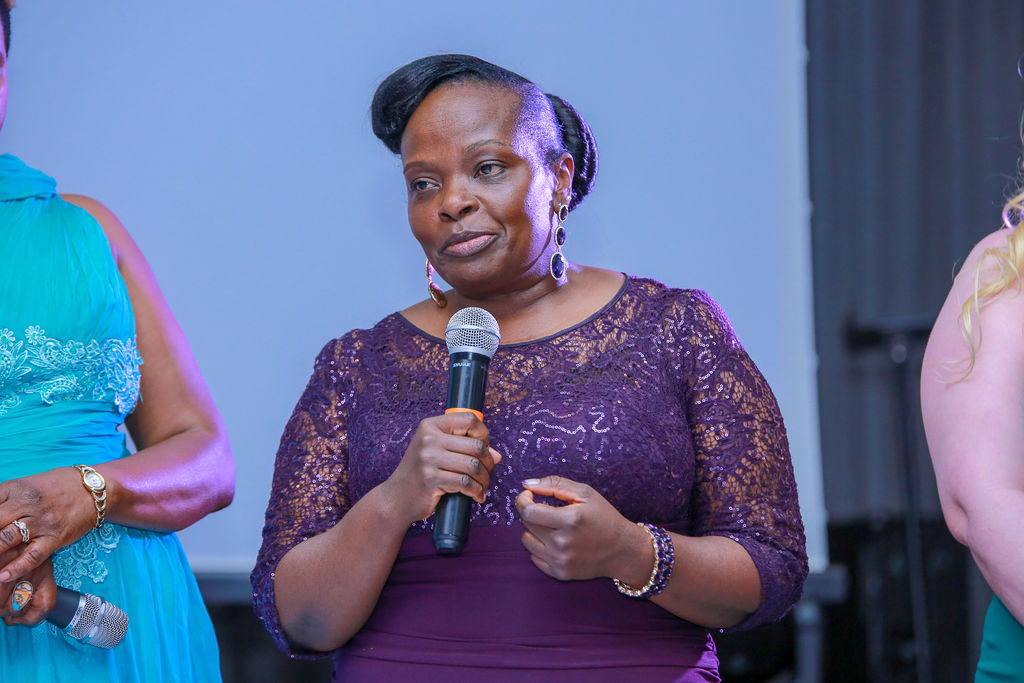
In Summary: It was a close brush with death. She was down in the dumps. The virus had beaten her black and blue. Her thoughts wandered from pole to post. She had hit rock bottom. Her case had only one appeal, God. But even God seemed too far to reach or embrace. Perhaps he wasn’t ready for her to depart the earth. That gave her some hope. She clang on. Then came the need to go to the bathroom. I need a catheter. No, you won’t get one. You need to walk to the bathroom. That is the only way we can keep you active and alive. What a brutal death sentence. She hobbled and wabbled. She crawled as a toddler. It was a better technique in moving forward. It worked. First milestone. But the toilet seat was a foot higher. It was easier to reach with the head than with her butt. It would have been easier to puke than pee. She mustered the last of strength and sat on the floor of the toilet. She took another five minutes to regain her breath. Second milestone. She longed to take the knee, but she could barely support the motion. It appeared so easy to take the knee by police chiefs and footballers in America. But this was no football pitch. It was a coronavirus death-trap. She was literally in the trenches, doing battle. No knees. No twists. No turns. Third milestone. She grabbed the metal bar by the bath tab. With the last gasp, she maneuvered what was left of her senseless body and dumped her bottom on the toilet seat. Fourth milestone. The move was timely. The bladder had started getting impatient with her sluggishness. With so many bottles of IVs, too much liquid had accumulated in the body. The bladder wasn’t going to hold on any longer. It had had enough. The burst was such a splash! But it jolted her back into her senses. The relief was palpable. Fifth milestone. But the physical and emotional pain was excruciating. Her head pounded and throbbed. It felt like a regiment of drummers gone amok. Her entire body was writhing in agony. Her limbs felt disconnected from the rest of her body. She had no clue which part of her body was still under her control. Everything of hers seemed to have crumbled like a pack of cards. She was such a mess! She was in pieces. She started feeling pain even in parts of her body she never knew existed. It was self-rediscovery per excellence. It was only then that she realized that nearly every part of her body was a liability. COVID-19 is no child’s play. It can body-slam, burn, roast, toast, and hung its hapless victims on a rack! Born and raised in Kampala, Uganda, Grace Nakigudde is an alumnus of Gayaza High School, Nabisunsa Girls Secondary School, and a graduate of Mass Communication from Makerere University. She worked for the Ministry of Information and Broadcasting as a news editor with Radio Uganda before moving to the United States. A resident of Boston, Massachusetts, Grace Nakigudde is a trained nurse, a new profession she currently pursues with passion. As Samuel Muwanguzi writes, to be alive is a great feeling. Life is good. And Grace Nakigudde loves it! Who doesn’t? Don’t you?
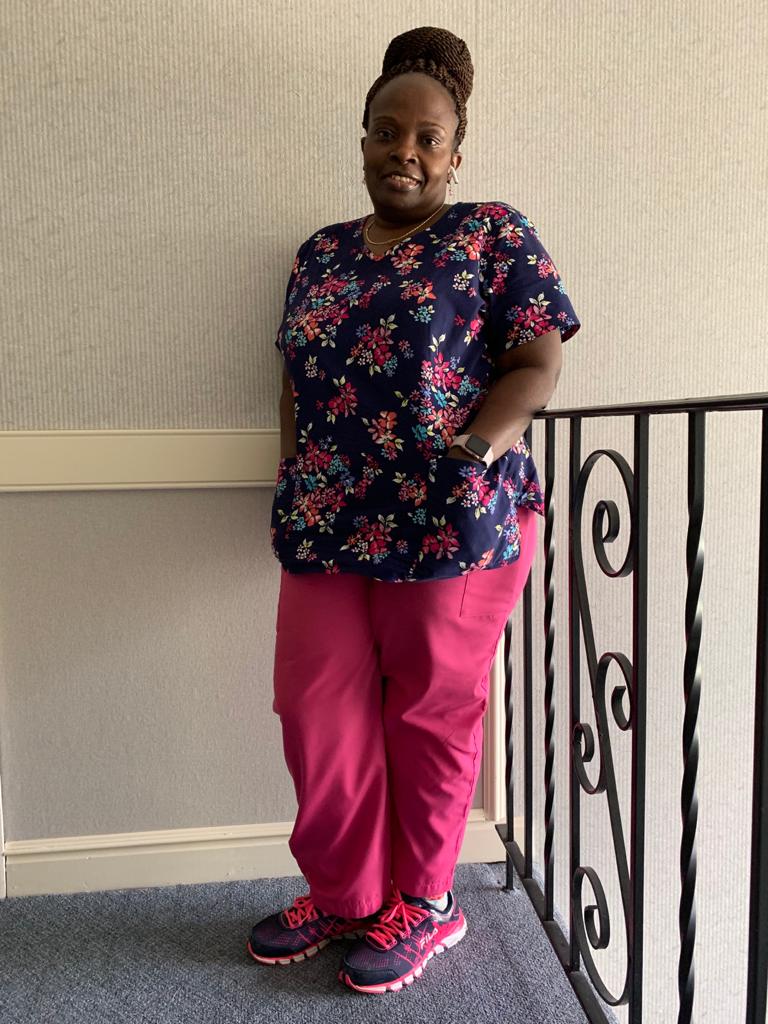
Boston, Massachusetts—A former Ugandan journalist turned nurse had a close brush with death in Boston when she defied all odds to beat off a deadly onslaught by the COVID-19 disease recently. Ms. Grace Nakigudde, a former journalist from Uganda who retooled as a nurse after settling in Massachusetts, United States describes her near-death encounter at the hands of the insidious coronavirus as the most ferocious, agonizing, and hopeless experience she has ever endured in her life.
“Death stared constantly in my face. It seemed the inevitable end after I went down with COVID-19. It was a universal expectation I nearly accepted. But being buried in a mass grave in the absence of relatives and friends traumatized me the most. It dwarfed the excruciating pain I was enduring. Miraculously, I survived. While I am back and grooving,” life during the coronavirus pandemic has drastically changed. COVID-19 is real, it kills and kills badly, she says thoughtfully.
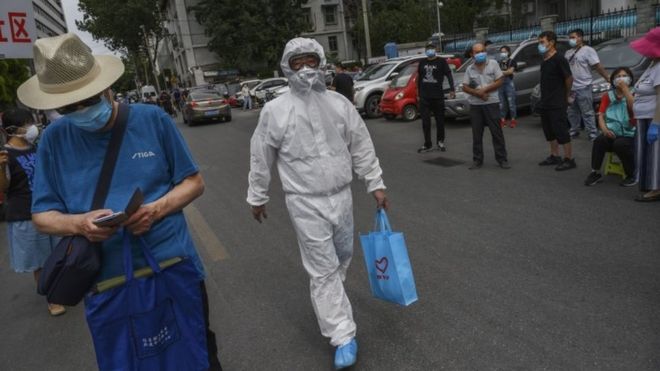
She is right. The coronavirus pandemic has turned life on its head. The COVID-19 disease is real and kills. According to John Hopkins University, by the end of this June, COVID-19 disease will have killed over half a million people with over 11.6 million others infected around the world amid growing fears of a full-blown second wave. In the United States, the hardest-hit country, the death toll now more than 130,000 with surging infections surpassing 2.9 million cases. In Grace Nakigudde’s native Uganda.
Ugandan coronavirus infections have risen to 937 with 868 recoveries and zero death since the first case was confirmed in the country in March this year, according to information from the Ministry of Health. But when the viral disease first emerged in China about six months ago, the whole world was caught flat-footed. When the creepy coronavirus struck, it found the over 7 billion people who populate the world napping. The COVID-19 disease was, and largely remains, a mysterious disease with no vaccine nor cure. From the Chinese City of Wuhan, through Europe, the United States, and the rest of the world, the coronavirus continues to spread like a wildfire in a dry harmattan. When the World Health Organization (WHO) declared the mysterious but deadly COVID-19 disease a pandemic, it sent the entire world into a tailspin. Pandemonium; lockdowns, panic shopping for essential commodities, and a heightened sense of anxiety never experienced before gripped the entire world. By the end of March, the global economy had been virtually shut down. In the meantime, infections and the death toll from the coronavirus pandemic were mounting to levels that overwhelmed health facilities and medical workers across the world.
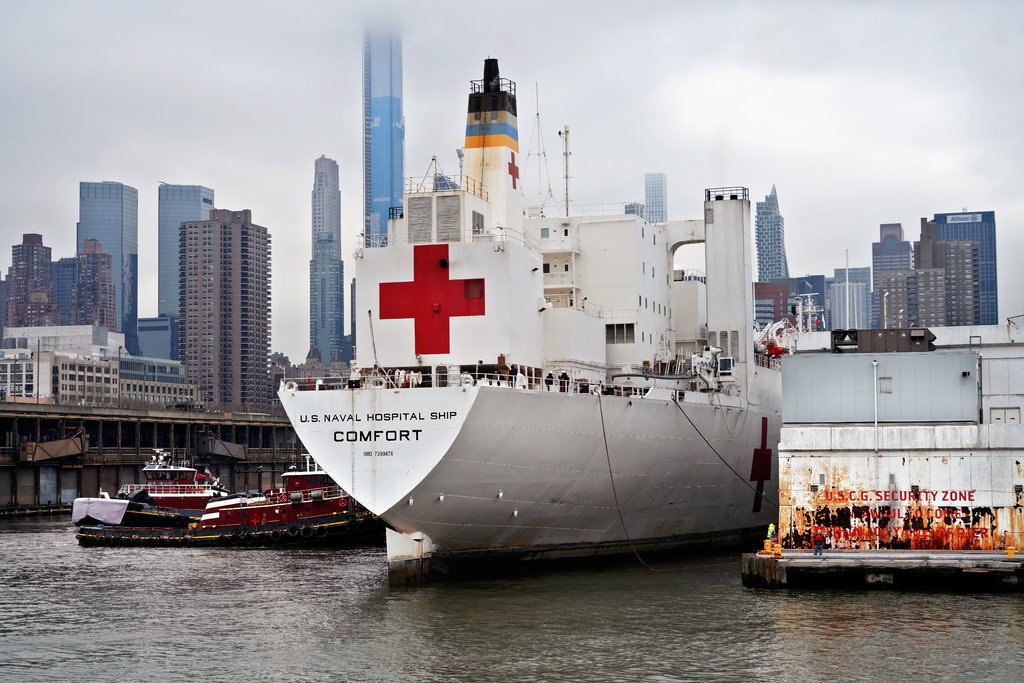
Ms. Grace Nakigudde, the former Ugandan scribe turned nurse in Boston, was not to be spared. Just like her fellow Ugandan and African immigrants, many of whom are working in the healthcare system in the US, it was only a matter of when and not if before they were directly infected and affected. Worse, the United States had been thrown into the worst throes of the coronavirus pandemic and was accounting for approximately one-quarter of the world total deaths and infections. Both the working and living environments in the health service sector in the US-health system gave Ugandans and other immigrant communities little or no chance to survive infections. Indeed, over the 3-month period, many Ugandans have and continue to fall sick, the majority taking care of themselves at home, while others are in and out of hospitals. Luckily, several Ugandans in the USA, the majority working in health facilities have recovered but others, tragically, have lost their lives to the deadly disease.
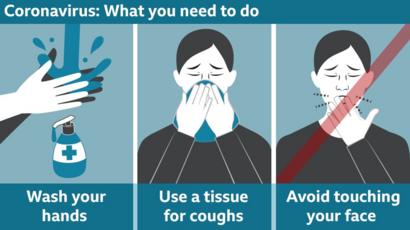
For Ms. Grace Nakigudde, around-the-clock nurse in Boston, Massachusetts, her dreadful encounter with Covid-19 disease was a tale of a horrific experience. “It started with a sore throat and excessive fatigue,” she recalls with abhorrence.” I first treated it with throat lozenges and started on the home-made remedies of lemon, ginger, garlic, honey, onions, etc.,” she says with discernible aversion. Ms. Nakigudde recalls that there was a lot of information on social media about how to protect oneself at home and to boost one’s immunity against the deadly virus.
“The fatigue intensified and soon I developed the bitter taste in the mouth and lost appetite but had no fever,” she says. But the mild symptoms could not hold Ms. Grace Nakigudde back. She continued to work for the next couple of days. “At work, our temperatures were checked at the beginning of every shift and there were no reported cases of sick Residents,” she recalls.
“Because the first COVID-19 cases were in hospitals, those of us working in Nursing Homes were not using the required personal protection equipment (PPE),” she says with regret, adding, “Health workers in nursing homes were only using gloves per standard precautions.”
On Thursday before Good Friday, after working a 16 hours shift, Ms. Grace Nakigudde returned home extremely tired and only remembers that she slumped in the computer chair and slept. “I soon developed nausea and then started vomiting,” she recalls, adding, “I checked my vital signs but were all within the normal range,” she says with amazement. Thoroughly spent but confident she was not infected with COVID-19, Ms. Grace Nakigudde slept through the night and the following day with the hope that enough rest would rejuvenate her energy and return to her regular routine. “The following Saturday, I woke up feeling better and went to work, a routine I repeated for the next 3 days,” she remembers. Ms. Grace Nakigudde says that with time, the fatigue intensified and later turned into generalized body weakness. “The next couple of days I could barely stand up and was too weak to go to work and I called out sick and were bed-bound for two days,” she recalls about the progression of her ordeal with COVID-19.
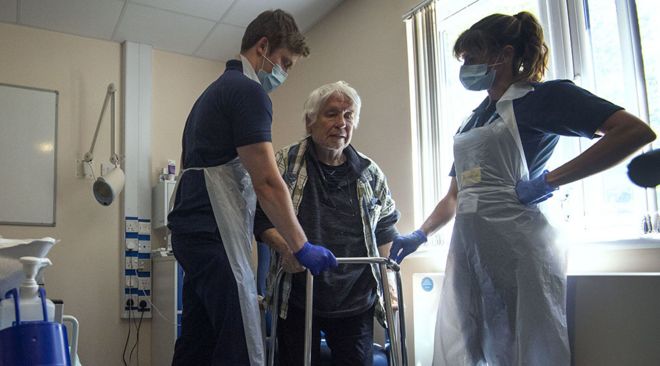
With the numbers of the sick soaring nationwide and the hospitals seemingly full, sports arenas and exhibition centers turned into temporary hospitals, like other patients, Ms. Grace Nakigudde was not sure where to go for a COVID-19 test, she says with apparent exasperation. Ms. Grace Nakigudde disclosed that when she called her Primary care Physician for a quick check-up, she was advised to go to any health facility that was testing for the virus because the Doctors had been reassigned to take care of the many COVID-19 patients in the hospital.
“With my condition deteriorating, a family member called an ambulance for me,” she recalls, adding, “on that bumpy ride to the hospital I prayed hard for a negative outcome of the COVID-19 test,” she says. On arrival in the emergency room at Winchester Hospital, she recalls, it was a scary and heightened beehive of activity. “When the nurses, dressed in full protection gear from head to toe embarked on assessing me, the strange process made me feel like a real Coved patient though deep inside I still hoped and prayed for a positive outcome,” she disclosed. “Immediately, blood samples and chest X-rays were done and I was also swabbed for the COVID-19 test,” she says. From that point, Ms. Grace Nakigudde recalls that her body temperature started going up, developed chills, her oxygen levels dropped, and she started gasping for breath.
”I was immediately put on oxygen to help me breathe better,” she says. “It really started getting scary and nasty to me,” she confesses.
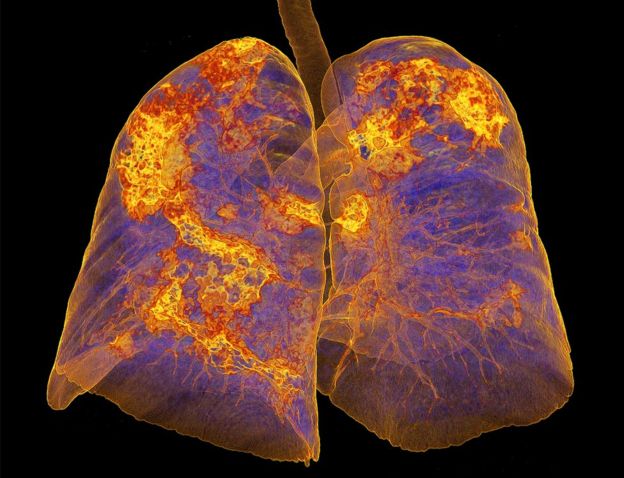
Later, when the Doctor came back with the X-ray results and informed her that she had pneumonia that had spread to both lungs, her worries went a notch higher. “Although I was started on antibiotics therapy and continued to receive Tylenol, my fever worsened throughout the weekend,” Ms. Grace Nakigudde recalls with antipathy. In the meantime, her sore throat had turned into a painful dry cough.
“As I lay in the hospital bed, battling a persistently high fever, intermittent coughing, and bodily pain, my whole body felt like it had been banged up from head to toe,” she recalls the ordeal in hospital. “Turning in bed was a nightmare as getting a comfortable position to sleep was as hard as walking on water,” the recuperating Grace Nakigudde narrates.
To add fuel to her already unbearable woes, the following day, the doctor confirmed her worst fears; the swab that was done the previous day was positive for COVID-19! “For a moment, I thought my life came to a standstill. I cried and cursed. I had no energy to ask any questions and had nobody to talk to. I wanted to call up my family and friends to break the bad news, get some consolation and probably say the final goodbyes but I was too weak to hold the phone or even talk,” Ms. Grace Nakigudde dreadfully recollects. “I later realized that crying wasn’t helping but only adding to the physical and emotional pain and misery I was going through,” she says with dreadful memories. By now, she was down in the dumps. The virus had beaten her black and blue. Her thoughts were wandering from pole to post. She had hit rock bottom. Her case had only one appeal, God. But even God seemed too far to reach or embrace. Perhaps he wasn’t ready for her to depart earth. That gave her hope. She clang on.
It was almost a breakdown moment for her. “I wondered why God had abandoned me at this time when I needed Him most,” she pondered to herself. Yet, it was to God that she turned to give the will and strength she needed to go through her ordeal. “With the little energy left in my body, I called on God every minute I was awake to save my life,” she recalls with a flashy smile of confidence. Her hospital room did not help matters either. “Lying in the hospital bed, alone in the negative pressure room with the door closed felt like I was transitioning into death and hell,” she says with abhorrence. “Every minute felt like it was the last one I had to live,” she recounts. Worse still, the almost non-stop television newscasts on all channels were adding fuel to the fire; running bleak COVID-19-related news. Besides, she recalls, that it was very traumatizing to know, in real-time, that she was now among the statistics being displayed on the television or to become one of the dead sooner than later. It was a close brush with death.
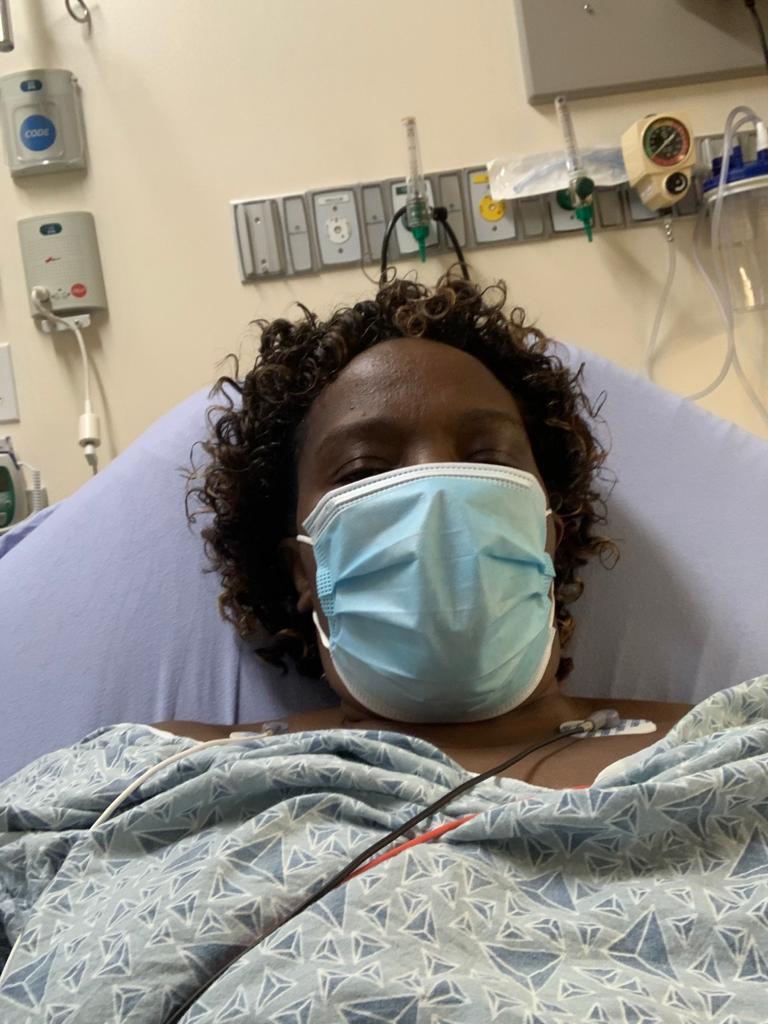
“I wasn’t sure whether to sleep or stay awake,” she recalls. “I couldn’t bear the discomfort I felt while awake but was afraid of sleeping lest I drifted off to death,” she says with loathing in her voice. Yet, canny as it is, sleep often took the best of her. Days seemed to drag on and nights filled with nightmares of death and burial in a mass grave. “Even screams calling for help as I woke up from the taunting nightmares didn’t help because behind the close door, probably nobody heard them,” she lamented.
But the moment of truth was just about to unfold. The first night in hospital, Ms. Grace Nakigudde asked the Nurse to insert a urinary catheter inside her because she felt too weak to walk to the bathroom. But before she could insert the device, The Nurse had to get permission from the doctor to do so. “But that was not the bad news, she recalls and continues; “ And When the doctor came into the room, she declined to grant the permission because she wanted me to, as much as possible, to walk to prevent my lungs from destruction by the virus,” she says with a sense of resignation. The doctor’s refusal hit her like a bombshell.
For the next five days, walking to the bathroom felt like dragging a heavy log on lifeless legs, she says with disdain. “I wobbled on while gasping for breath even when on oxygen,” she recalls with anguish. Sitting on the toilet was another nightmare. “I was too week to sit on the toilet,” she says. “I just slumped on the toilet seat, held onto a metal bar that was close by to get my business going,” she says with a chuckle. Every progress she made towards the toilet was more than just an abstract milestone. It was real. It was physical. It was painstaking. But that was just the first day.
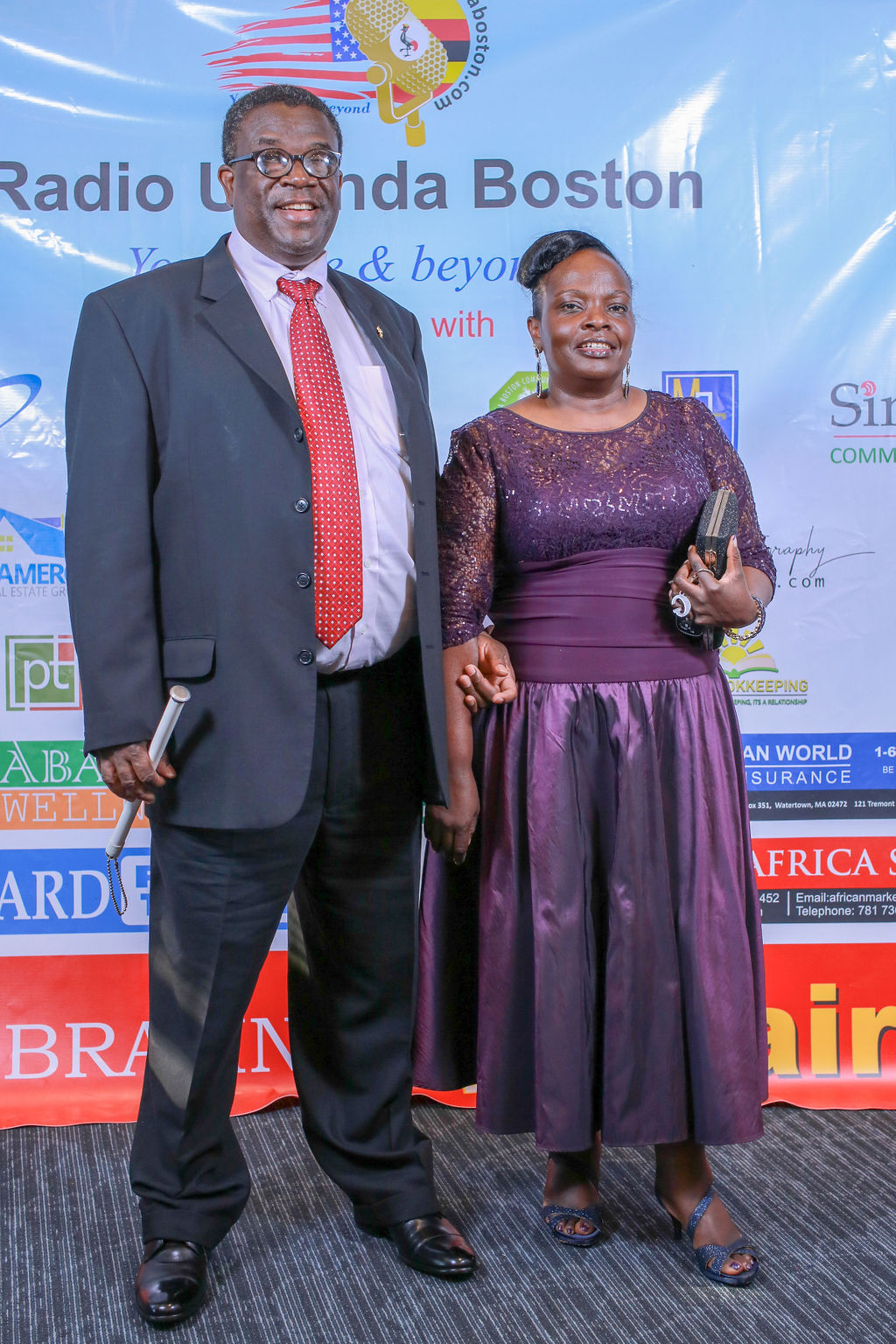
The worst was yet to come. For the next five days she was in the hospital, and as the clock continued ticking, she not only learned how to number her days, she also counted every major milestone she attained on her way to and from the bathroom. She narrates the dialogue that went through her mind during those horrible yet inevitable visits she made to the bathroom and how she had routinely classified the milestones. “I need a catheter,” she recalls asking the nurse. “No, you won’t get one. You need to walk to the bathroom. That is the only way we can keep you active and alive,” came the warm but firm reply. “What a brutal death sentence. I hobbled and wabbled. I crawled as a toddler. It was a better technique for moving forward. It worked,” she recollects. First milestone. But the toilet seat was a foot higher. It was easier to reach with the head than with her butt. It would have been easier to puke than pee. “I mustered the last of my strength and sat on the floor of the toilet. I took another five minutes to regain my breath,” she distressfully recalls. “ Second milestone. “I longed to take the knee, but I could barely support the motion. It appeared so easy to take the knee by police chiefs and footballers in America. But this was no football pitch. It was a coronavirus death-trap. I was literally in the trenches, doing battle. No knees. No twists. No turns,” she states with anguish. Third milestone. “I grabbed the metal bar by the bath tab. With the last gasp, she maneuvered what was left of her senseless body and dumped her bottom on the toilet seat. Fourth milestone. The move was timely. The bladder had started getting impatient with her sluggishness. “With so many bottles of IVs, too much liquid had accumulated in her body. The bladder wasn’t going to hold on any longer. It had had enough. The burst was such a splash. But it jolted me back into my senses. The relief was palpable,” she recalls with an audible sigh of relief. Fifth milestone. Oftentimes, the relief turned into a fast highway into the ‘quarantined’ slumberland. But, countless times, the forbidden short naps were helpful. “Avoid sleeping as much as possible because you may never recover your breath when you sleep. Try to stay awake as much as you can,” she recalled the caution from her doctor on the first day. “I tried but failed at every asking,” she recollects. Recalling the wisdom of her forbearers, she thought to herself; “even the one mourning his/her mother can be overwhelmed with sleep,” she mused. “I had been overwhelmed,” she admits. But this was a real battle—it was either life or death—it was about her and nothing about it was abstract. At the end of every trip to the bathroom, she had to make her way back to the room. “Gripping for every sturdy object in sight, I painstakingly snailed back to the edge of my bed,” she reminisces about the ordeal she repeated several times each day of the five days she spent in the hospital.
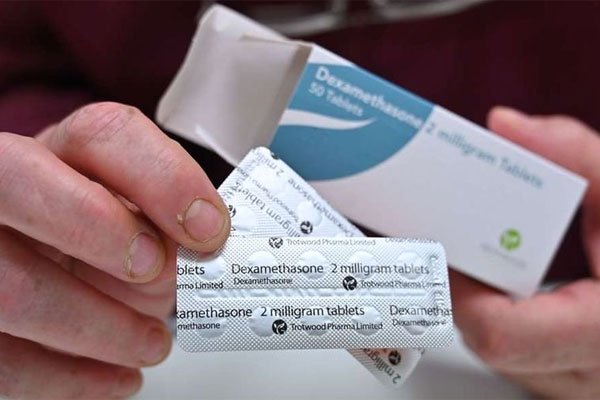
Ms. Grace Nakigudde recalls that every morning blood samples were drawn to monitor the labs which were critically abnormal on the first two days of her admission. In turn, her body, mind, and soul bore the brunt of those terrible lab results. Every dawn of those two first days was a nightmare in its own right. There was no medicine to reduce her pain. Even the medication that is now on trial was not being administered to patients at the time I was in the hospital. “The pain was excruciating. My head pounded and throbbed like a regiment of drummers gone amok,” she mournfully recalls. Her entire body was writhing in agony. “My limbs felt disconnected from the rest of my body as I had no clue which part of my body was still under my control,” she says, adding, “everything of mine seemed to have crumbled like a pack of cards.” She was such a mess! She was in pieces. “I started feeling pain even in parts of my body I never knew existed. It was self-rediscovery per excellence. It was only then that I realized that nearly every part of my body was a liability,” she recounts with a straight face.
COVID-19 is no child’s play. It can body-slam, burn, roast, toast and hung its hapless victims on a rack! It is no joke. But as luck would have it, “on the third day, the Doctor said she wanted to see me walk without oxygen because the labs were getting better and she planned to discharge me to return home as soon as possible,” she narrates as her face lights-up.
On the fifth day when the labs were back to normal range, the Doctor said she was going to discharge her back home. “Strange as it may sound, I begged the doctor to let me stay in the hospital a little longer where I felt safer than at home,” she recalls with amazement. “How would one prefer to stay longer in hospital than at home?” she asked rhetorically with a smile playing on her lips. Despite her please to stay in the hospital, the doctor could not budge. The doctor assured her that she was out of danger and she would recover at home.
“After 5 days in the hospital, I was discharged back home,” she says with a smile.
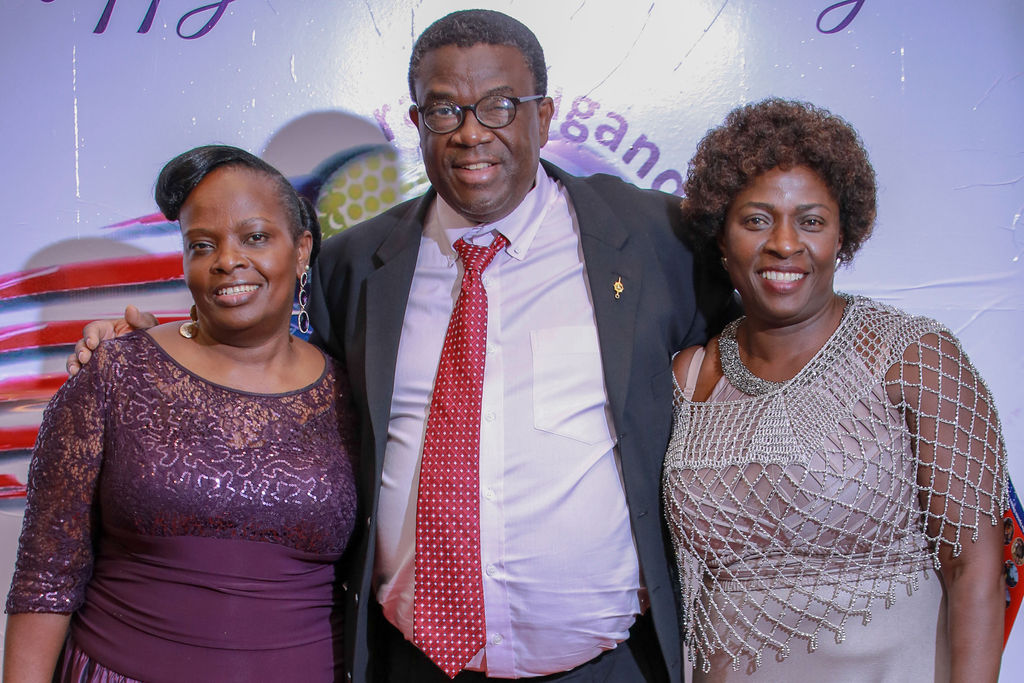
However, the real and tortuous road to recovery had just started. “ Armed with the incentive spirometer in my hands which the Doctor had described as my magic tool, I embarked on the long road to recovery,” she said with a relaxed tone. An incentive spirometer is a device used by patients with respiratory issues to help them improve the function of the lungs. But there was nothing to write home about her homecoming. Walking up the stairs to my second-floor apartment felt like the cruelest and hardest punishment I had ever endured, she sadly narrates. Her legs were barely moving. It was a big sigh of relief when she finally made it to the house. “It took me close to an hour to climb a set of 16 stairs,” she says, mournfully, adding, “I took four breaks to sit, stand, and catch some breath before I landed on the second floor.”
While at home, Ms. Grace Nakigudde spent the first two days in bed because her body was too weak to allow her the luxury of sitting or standing. “My legs were so sore that I needed assistance to walk,” she pitifully says. I showered while sitting on a stool because my legs and entire body were too wobbly to support me,” she says loathingly. Worse still, her appetite was so bad that it left a bitter taste in her mouth that seemed to linger forever; she barely ate any food as her mouth dispelled everything she tried to take a bite on. “But when a friend brought for me some ‘nkejje’ soup mixed with aloe Vera which she recommended as a sure booster to my appetite, I obliged begrudgingly,” she narrates. “When I tasted the remedy, it was so bitter that I almost choked on it,” she says, adding, but, lo and behold, miraculously, my appetite was back the following day and I was able to eat and enjoy a nicely cooked home meal, the first one in weeks,” she recalls triumphantly.
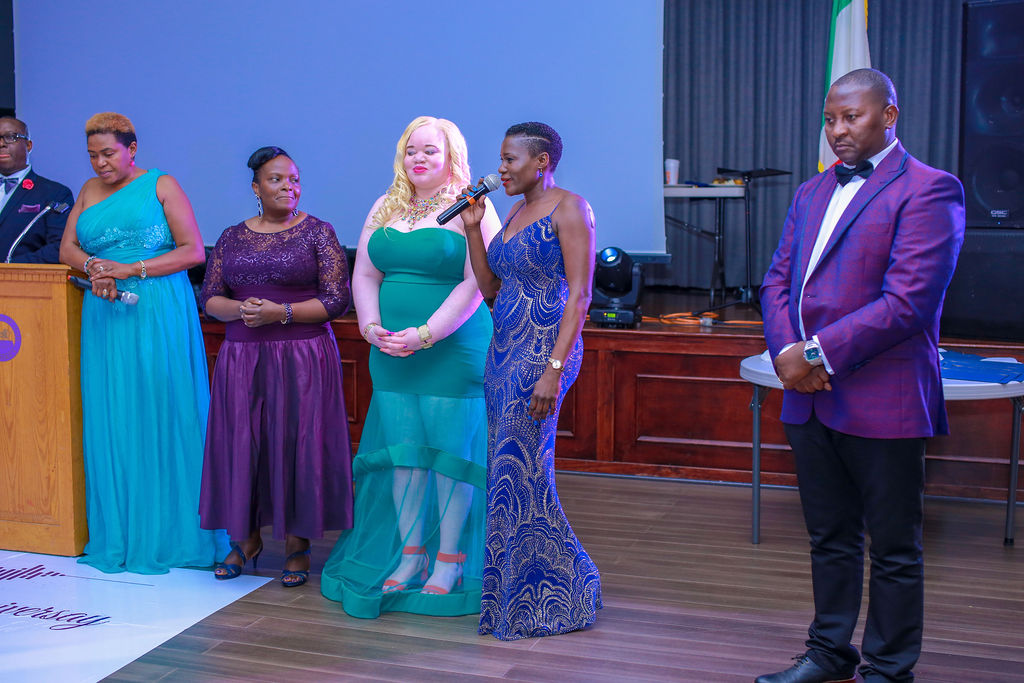
Ms. Grace Nakigudde was now surely on the mend. Days later, she started walking by herself, taking baby steps, holding onto the wall or anything available for support. “The whole new experience felt like turning the clock back to when I first learned how to walk,” she reminisces about her newly found gift of patience with herself. With time, her walking stabilized but the legs still hurt, she says. Not an enthusiastic admirer of Chinese meritocracy, Ms. Grace Nakigudde started finding sense in their time-tested wisdom: “a journey of a thousand miles begins with one step.” She is now a practicing convert taking one step, one punch, and one round at a time.
Like those valiant biblical prophets, her hands are now training to war and her fingers spoiling for a fight. “For precept must be upon precept, precept upon precept; line upon line, line upon line; here a little, and they're a little.” (Isaiah 28:10).
“I continued to take small walks in the house as part of my gradual but steady recovery process,” she delightfully says. “I can now run up and down the 16 stairs in seconds as a 10-year old kid would,” she proudly speaks of her newly rediscovered mobility exploits.
Three weeks after returning home from the hospital, she walked down the two sets of stairs to pick up mail. It was the first time she had stepped out of her apartment since she was discharged, she recollects. But going back up the stairs was another story altogether. “I came back whimpering like a dog,” she says with amusement. “The oxygen level had dropped to 88% but came back right up soon as I sat down, took some deep breaths and inhaler into the incentive spirometer,” she recollects with a discernible sense of gratification. Despite the challenge, walking down and back up the stairs was a big achievement compared to when she had to be supported to walk. “With time, I started walking outside the house unsupported,” she proudly recalls.
To celebrate her birthday which fell on May 01, a section of family and friends surprised her with a drive through her residential complex. It was all tears of joy for such a nice and befitting reunion through social distancing. Among the presents they gave her was a nicely wrapped ‘cake’, she recalls. When everyone had left, Ms. Grace Nakigudde couldn’t wait any longer before unwrapping the ‘cake’ to take a bite. “With a knife ready, I tore through the layers of wrappings to the last one. Lo and behold, the ‘cake’ turned out to be a nicely made meal of matooke(plantains) mixed with peanut stew! She reminisces with unrestrained laughter. From the baker of the lovely ‘cake’, the gift was the most appropriate for Ms. Grace Nakigudde’s recovery.
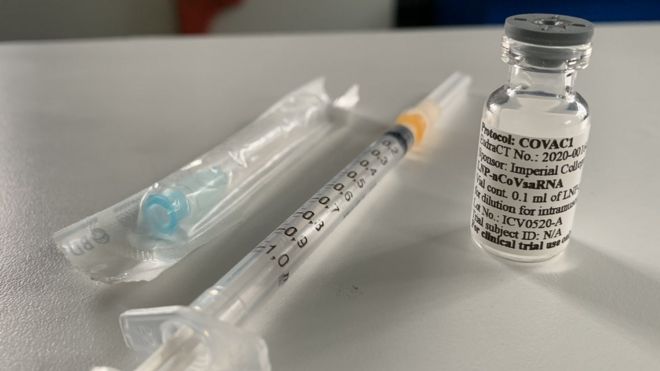
Unlike other COVID-19 patients and survivors, Ms. Grace Nakigudde took a bold decision not to stigmatize herself by keeping quiet about her infection, struggle with the disease, her close brush with death, and the lengthy recovery process. After her COVID-19 experience, Ms. Grace Nakigudde has a personal message to all those who got sick with the deadly disease: “Don’t feel guilty about it, it was not your fault that you got infected. It was just hard luck that you got it,” she says with the tenderness of a counselor. She assures that although the road to recovery may be long and odious, patients and their loved ones should not lose hope but focus on taking care of themselves since neither cure nor vaccine is available to treat or prevent the disease. To those stigmatizing the sick, she has some words of caution for them too: “The virus does not discriminate. It does not respect genders, class, race, age, color, wealth, poverty, and boarders. It can strike anybody, anywhere, and anyhow. Empathize with the sick and support them,” she pleads with fervor. To her native Ugandans back in her motherland, Ms. Grace Nakigudde sends a message of caution to the skeptics and cynics. “This coronavirus is real. It is still out there. This coronavirus kills and kills badly. It neither has a cure nor a vaccine. Take the medical guidelines to avoid catching the disease - practice the so-called 3Ws: Wash hands; wear that mask, and watch your distance. Be serious. You never know when it could strike,” she says with passion.
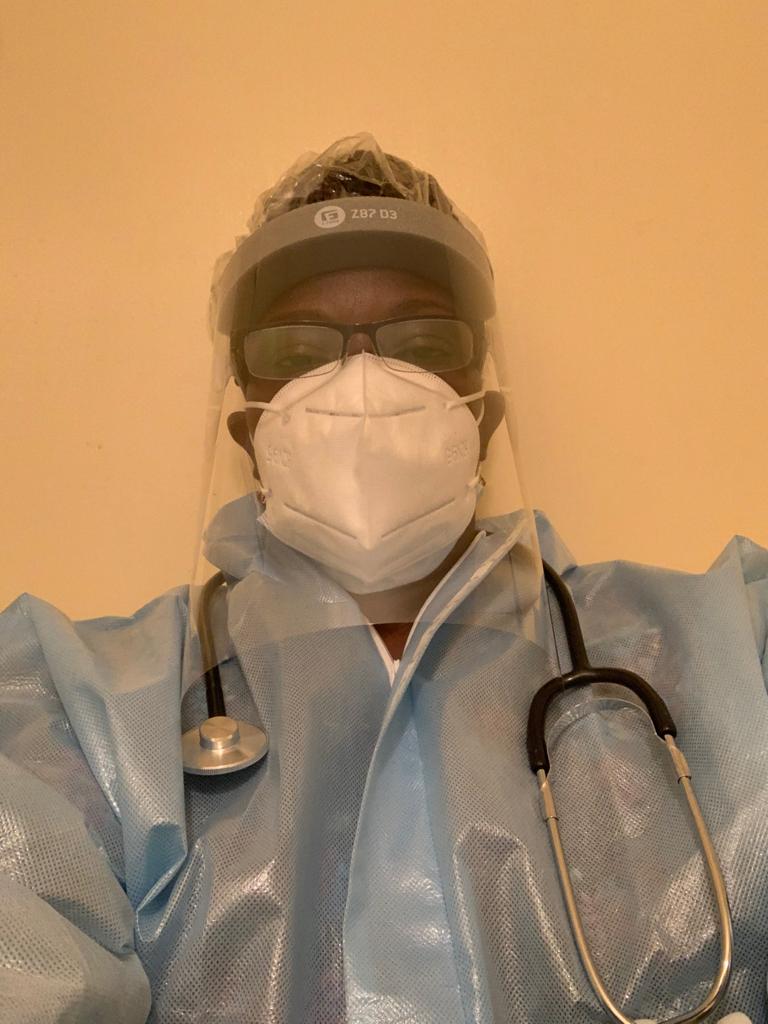
With nearly two months of sickness and recovery now safely behind her, Ms. Grace Nakigudde is back with a bang; grooving! She has returned to work. But it is all very different at her workplace. She now has to gear-up. Armor-up. Cover-up as COVID-19 has changed almost everything. It is no longer business as usual. Safety is now the mantra. Getting to the floor/ward is like moving to a war front. “It sure feels like it is,” she says. “I was nervous and worried about possible reinfection when I returned to work,” she admits. On the first day, Ms. Grace Nakigudde was given a full set of personal protection equipment (PPE); a jumpsuit, face mask, and shield. “Wearing a jumpsuit felt like I was wrapped in a tarpaulin,” she muses, adding, “I perspired and got drenched throughout the 8- hour-shift I spent on the ward.” But the new challenges at her workplace could not dampen Ms. Nakigudde’s humane and compassionate demeanor. “This was a homecoming like no other before,” she says fighting back tears. “Reuniting with my coworkers and getting back to take care of patients felt like I was wearing the victor’s crown,” she says delightfully. “I had defeated the deadly COVID-19 disease and I was on my feet again!” she declares with finality in her voice.

Most interesting though is the extent to which the ordeal with the coronavirus has brought Ms. Grace Nakigudde in closer proximity with her creator. “I am thankful to God who, by His grace, I was able to get out of the hospital alive,” the very ebullient Grace Nakigudde told the EADM. “This experience has been a total transformation; it has had a humbling effect on me; taught me patience; to love more, pray ceaselessly, and strengthened my faith in God as a forgiving and merciful Father,” she says with renewed zeal and commitment to God. She is also full of praises for the medical team at Winchester Hospital for working tirelessly around the clock to save her life. Ms. Grace Nakigudde pays tribute to her family and friends for the love and prayers they extended to her during the horrific time when she was bed-ridden and fighting for her life.
She says that her family inspired her to soldier on because if the worst had happened, her demise would have devastated her family especially her elder sister in Uganda. She recalls that her elder sister spent countless days praying and crying out to God to spare her ‘little sister’ whose wellbeing was entrusted to her by their late mother. “My elder sister in Uganda cried every day I was sick especially during the five days I spent in the hospital,” says Ms. Nakigudde, adding, “Every time she spoke to me on the phone and barely heard my faltering voice, she pleaded with me to live, prayed to God to keep me alive to avoid the wrath of our late mother who charged her with the responsibility of taking care of me,” she narrates with a chuckle. So, Ms. Nakigudde says that God indeed listened to and answered the family prayers because she survived and God saved the family the horror of losing their ‘little sister’ and the trauma of not being able to give her a decent send-off. She is now the crown jewel of the family. And to her delight, she has since won herself the moniker of ‘Kawonawo’ (veteran) by her family and friends in recognition of her victory over the deadly COVID-19 disease. “I now wear the moniker of a veteran as a badge of honor to showcase to the world that although the disease is real and kills, it can also be defied, beaten, and overcome,” she declares with a victory salute! But that is not all. Reflectively, she muses: “This coronavirus thing is damn real. You had better believe it. Doubt it to your own peril. I am a survivor’s tale. I almost dropped the ball. This is my moment to shine again,” she says, and continues,” God’s gift of life to us should never be taken for granted again. This is no cliché. It’s real. If you doubt it, invite COVID-19 to pay you a brief visit. I won’t join the party. I am out of the woods. The pandemic trenches are far behind me. I am gallantly marching in the victory parade. I am racing daily to my prayer altar for thanksgiving. I am firing from all cylinders. I cannot wait for the next summer fling to showcase my renewed lease to live!” she declares triumphantly.
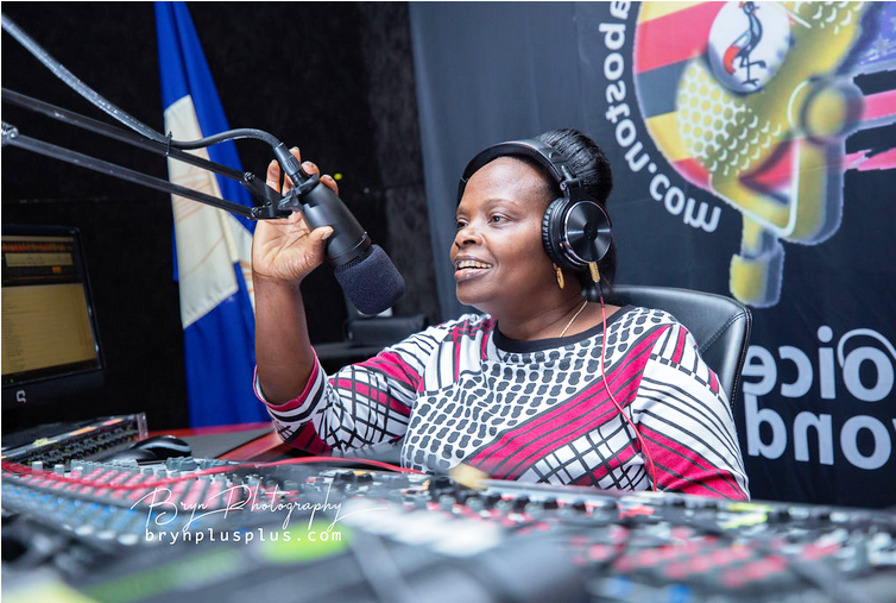
Old habits die hard--vintage scribe Ms. Grace Nakigudde in Radio Uganda Boston studio with her political show co-host Dr. Sebuwufu
Born and raised in Kampala, Uganda, Grace Nakigudde is an alumnus of Gayaza High School, Nabisunsa Girls Secondary School, and a graduate of Mass Communication from Makerere University. She worked for the Ministry of Information and Broadcasting as an information officer with Radio Uganda (News Editor), had a brief stint as the information officer at the European Union offices in Kampala before moving to the United States. A resident of Boston, Massachusetts, Grace Nakigudde is a trained nurse, a new profession she currently pursues. But as old habits die hard, Grace Nakigudde countless attempts to shed off her vintage vocation as a scribe have been a spectacular failure. Thanks to the now over 10-year-old Radio Uganda Boston which attracted her to become a panelist at a political talk show every Friday evening. She has held on to that beat for the last 10-years and still counting. Who would have wished to leave that very exciting life to become another COVID-19 statistic? Not Grace Nakigudde. Life is good. And she loves it! Who doesn’t? Don’t you?


